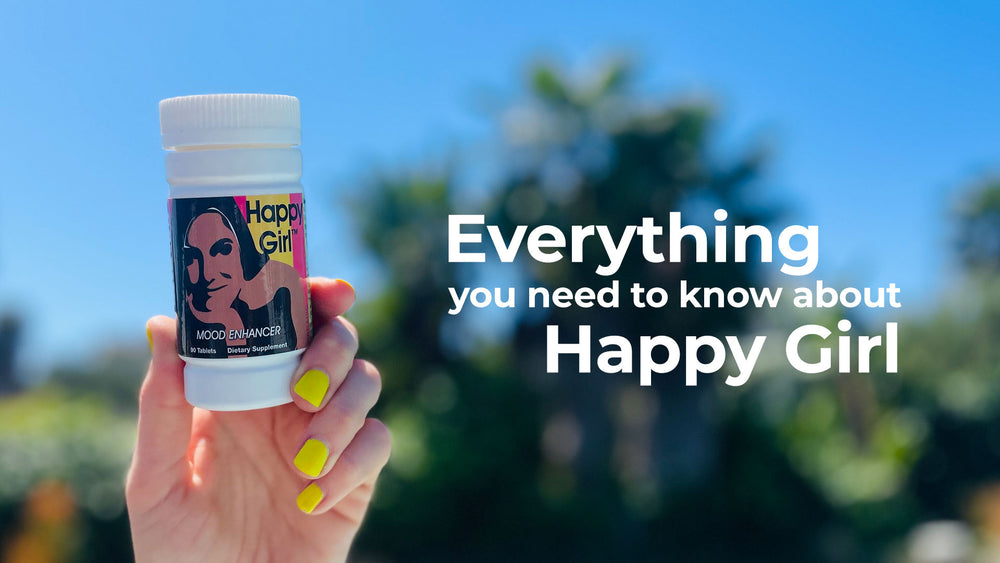Many doctors are now prescribing meditation instead of antidepressants. Traditional medical practitioners have recommended meditation and other non-drug treatments for over six million Americans, according to a Harvard Medical School Report.
Achieving happiness through meditation is a doable goal for everyone, whether you suffer from depression or just want to live a calmer, more fulfilling life. Many medical experts are studying mindfulness meditation as a treatment for depression, anxiety and everyday stress.
What is Mindfulness Meditation?
Meditation is misunderstood by many people, who believe it’s nothing more than sitting and daydreaming. But researchers and doctors agree that meditation is a powerful tool for retraining the mind. “Meditation is an active training of the mind to increase awareness,” states Dr Madhav Goyal, an assistant professor at John Hopkins University School of Medicine in Baltimore.
You sit on the floor cross-legged (or in any comfortable position) with eyes closed and back straight. For at least 10 to 15 minutes you let your thoughts drift in and out and observe them without judgment. Concentrate on your breathing, making that the basis of the session, instead of your thoughts. Eventually, your thoughts fade away, and you become calm and peaceful. It may take a few sessions to feel improved happiness through meditation, and if you continue to meditate on a regular basis, you’ll experience other physical and mental health benefits.
Mindfulness meditation, a secular meditation that has no ties to Buddhism or other Eastern religions, has positive effects on depression, pain, and to a lesser extent, anxiety. The Journal of the American Medical Association: Internal Medicine analyzed 47 studies and concluded that while meditation does help with those problems, it probably won’t cause improvement in patients with weight and sleep issues or substance abuse.
Finding happiness through meditation is possible for people with anxiety, but research results are mixed. Mindfulness meditation may be effective for depression, but a study conducted at England’s University of Sussex found that meditation doesn’t offer the same benefits for anxiety sufferers. One reason for this may be the fact that people with anxiety may also suffer from cancer or medical conditions. The therapeutic benefits of depression for anxiety may depend on the root cause of the problem. People who experience anxiety because of stress at work or home will see more benefits from meditation than individuals with disease-related anxiety. Happiness through meditation is just one of the positive effects of this ancient practice. You’ll handle everyday stressful situations better and avoid the fallout from hasty decisions.
How to Get Started with Meditation
Meditation provides benefits regardless of when or where you do it, but taking certain steps will maximize your experience. Set a convenient time to meditate before or after the day’s activities. Shortly before a meal (as long as you aren’t too hungry) or two hours after a meal are good times for meditation, as the stomach will be relatively calm. Nature’s transition times, sunrise and sunset, are ideal. If you can meditate outdoors or near a window when the sun is rising or setting, it will heighten the spiritual aspect of your practice. Meditate in a quiet place, away from the TV and loud conversations.
Sit in a comfortable position with your spine erect, relax your shoulders and close your eyes. The lotus position, or Padmasana, is a sitting position used by some practitioners, but it’s not necessary to experience the full benefits of meditation. You can sit on a couch, a chair or the floor and meditate, whatever feels most comfortable. Before sitting down to meditate, do a few warm-up yoga asanas, such as the downward facing dog, simple twist or back stretch, to limber up and help the body feel lighter. Do a few deep breaths or the Complete Breath to steady your breathing and prepare the body for meditation. Once you begin meditating, keep a gentle smile on your face. When you finish meditating, open your eyes slowly and adjust to your surroundings again before moving around.
To make the most of your practice, meditate twice a day. Like any exercise or mental study, you can only reap full benefits if you perform it on a regular basis. Once you learn the basics, try meditating with friends. This provides a boost for people who may be lax about meditating everyday, and reinforces emotional bonding with your companions.
The Benefits of Mindfulness Meditation
The peace you feel after ending a meditation session can help lower your blood pressure, increase serotonin (the “happiness” hormone) in your brain, boost your energy and improve your immunity and resistance to pain. Regular meditation practice changes your body’s physiology, filling every cell with more prana (energy).
Mindfulness meditation helps patients control negative thoughts instead of allowing constant worry to cloud their inner dialogue and behavior. It trains people to stay in the present moment, instead of reliving the past or obsessing over the future. Living in the past (or the future) prevents us from making good decisions in the present moment and enjoying our daily lives.
Meditation reduces stress, and stress is a factor in most illnesses, from heart disease and high blood pressure to fibromyalgia. It reduces migraines, ulcers and muscle or joint problems caused by tension.
Meditation Changes Your Thought Patterns, Giving You Better Mental Clarity
Meditation sharpens your thinking by promoting an Alpha brainwave state. Improved mental clarity helps you make better decisions and become more creative. Meditation increases your intuition and brings you emotional balance. You won’t get angry or upset when things go wrong, and confront problems instead of complaining. No matter how carefully we plan our days, things won’t always go our way. This is true even for people who are control freaks! Daily meditation practice trains our minds to respond calmly to accidents instead of reacting emotionally.
Since regular meditation practice clarifies your thinking, you’ll naturally gravitate towards a healthier lifestyle. Choosing fruits, vegetables and home-cooked meals over processed foods won’t be a struggle anymore. You’ll feel so good from meditating, you won’t want to spoil it by eating food that saps your energy and makes you gain weight.
Your self-awareness increases and you’ll be more in tune with your inner feelings. You won’t want to follow the crowd or be a people pleaser; you’ll follow your own path. Meditation helps you become more comfortable in your own skin.
Meditation Offers Physical Benefits to Keep You Healthier and Happier
The anti-stress benefits of mediation do more than clear your mind. Meditation increases nitric oxide in your body, which causes blood vessels to relax. This lowers your blood pressure. Patients on medication for high blood pressure can reduce or eliminate their need for prescription drugs by meditating.
Research conducted at Harvard University shows that changes in physiology due to meditation provide anti-aging benefits. Long-term meditators retain more brain cells as they age. This can help reduce memory loss and protect against dementia and Alzheimer’s. People who meditate have longer chromosome caps called telomeres. These caps indicate a person’s biological age. Researchers believe longer telomeres are a result of reduced stress and its anti-aging effects on the body. There are no studies that show meditation can increase longevity, but it can help you live a healthier, calmer life.
Research Proves You Can Acquire Optimism and Happiness through Meditation
Electrical activity in the left frontal lobe of the brain increased in people who completed two months of meditation training, according to a University of Wisconsin study. This area of the brain is more active in optimists than in pessimists. You can find happiness through meditation with a minimum of effort. It may be difficult for high-strung or Type-A personalities to still their thoughts during the meditation learning process, but it’s well worth the time. Happiness through meditation can be a reality for even the most frazzled or preoccupied beginner.
Meditation May Help Prevent Relapse in Depression Patients
People who have suffered from clinical depression may avoid relapse by learning meditation. The relapse rate for depression is as high as 60% for people who’ve had one major depressive event, 60 to 90% for people who’ve had two depressive events, and 95% for people who’ve had three or more depressive events. When used in conjunction with regular visits to doctors and therapists, meditation and mindfulness-oriented cognitive therapy reduce depression relapse rates for people who’ve had three or more depressive episodes. Studies show that mindfulness meditation makes no difference in depressive relapses for people who’ve suffered less than three depressive episodes. Achieving happiness through meditation is a possibility for people who suffer from depression, as long as they exercise, eat a healthy diet and attend regular therapy sessions. Meditation can be beneficial for depression patients whether they are on medication or not, and may work just as well as antidepressants. The study also suggested that no harm can come from meditation, regardless of the patient’s physical or mental problems.
Make Other Healthy Lifestyle Changes to Improve Happiness through Meditation
Meditation improves your health and happiness, but you can increase its benefits by implementing other lifestyle changes. Adults need at least 75 minutes a week of vigorous aerobic exercise (jogging, aerobic dance) or 150 minutes of moderate aerobic activity ( swimming, walking, playing softball, etc.). Do strength training twice a week using hand weights, weight machines or go rock climbing. Flexibility exercises include yoga (the perfect companion to meditation), Pilates or Zumba.
Getting enough sleep is often underestimated as a staple of good health, but it refreshes and rejuvenates your body and clears your brain to focus better on the next day’s activities. REM (rapid eye movement) sleep is especially important for memory consolidation and nervous system development. Experts recommend seven to nine hours of restful sleep a night.
Eating a diet of fruits, veggies, lean meats, nuts and fish prevents heart disease and other physical ailments. A diet rich in good food also leads to better mental function and ability to handle stress.
Nutritional supplements help balance mood and maintain good physical health. Wheatgrass supplement tablets are an all-around good choice for increasing happiness. Wheatgrass supplements contain Vitamin B12, B6 and other B-complex vitamins which are proven to boost mood.
Wheatgrass-Based HappyGirl , Zeal O2 and REVV Increase the Benefits of Meditation
Supplements made with wheatgrass and a blend of herbal remedies for depression and anxiety will increase the benefits of happiness through meditation. Wheatgrass Love offers three wheatgrass supplements made from high value wheatgrass and nutritious herbs. The hundreds of vitamins and minerals in wheatgrass include B-complex vitamins for increased happiness, and we add even more B-complex vitamins to our proprietary blend. The chlorophyll in wheatgrass has all essential amino acids, hundreds of enzymes, calcium, zinc, potassium, vitamins A, E,C and K, plus bioflavonoids, growth hormones and other phytochemicals.
HappyGirl Mood Enhancement Supplement gives you all those nutrients, along with cayenne pepper, green tea extract, gingko biloba to create a happier mood, more energy and better mental function. Ideal for women who suffer from mood swings due to PMS or menopause, it can also be used by men, women and seniors to fight occasional, non clinical depression and boost energy. Read the HappyGirl frequently asked questions.
Zeal O2 Natural Weight Loss Supplement and Energy Booster offers all the nutrition and energy of wheatgrass, and a herbal blend including cayenne pepper, green tea extract and Citrus Auranthium (bitter orange). A safe replacement for ephedra, Citrus Auranthium assists the body’s natural fat burning mechanism and increases energy to help you lose weight faster. Read the Zeal O2 frequently asked questions.
REVV Natural Energy Supplement combines wheatgrass, L-taurine, choline bitartrate and periwinkle herb to send your energy skyrocketing whenever you need it. These chocolate mint wafers taste great and offer a safe, 100% natural formula to give you endurance for sports, exercise or daily activities. Choline Bitartrate increases acetylcholine levels in the brain to help preserve memory and learning ability as our brains age. Periwinkle herb increases blood flow to the brain, reducing the chance of Alzheimer’s, dementia and memory loss. Read about the REVV frequently asked questions.
Improve happiness through meditation by living a healthy lifestyle and taking a wheatgrass supplement from Wheatgrass Love!
Zeal O2, HappyGirl and REVV come with a money-back guarantee. If you aren’t satisfied with Wheatgrass Love products, return the unused portion for a full refund. Always talk to your doctor before taking any dietary supplement.
















